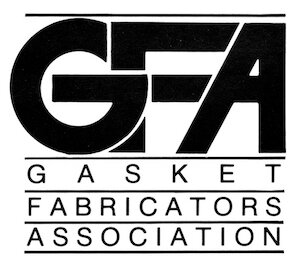ElastaPro makes solid silicone sheet in various grades. Solid silicone grades are primarily made from silica, which contains various chemical components such as carbon, hydrogen, oxygen, and silicon. Solid silicone is a pliable elastomer or rubber ideal for a multitude of applications in the medical, aerospace, automotive, electronics, and food processing industries.
ElastaPro Silicone Sheeting offers a broad spectrum of solid silicone sheeting that our clients can use for a variety of purposes. These solid silicone products are extremely versatile, flame-retardant, durable, heat-resistant, high-performing, and have low chemical reactivity, making them perfect for your solid silicone needs. Our products can be supplied in either cured sheet or uncured sheet (which is used by fabricators to make their own part constructions). There is no elastomer better in maintaining its physical properties across a broad temperature spectrum, than silicone.
ElastaPro’s Solid Silicone Grades
At ElastaPro, we provide the finest silicone products by combining the advantages of high-quality silicone rubber with superior service and technology. Our products can be availed in various grades, sizes, colors, and durometers and are proudly made in the USA.
Commercial Grade Solid Silicone Sheet
Ideal for extreme temperature applications, ElastaPro’s commercial-grade silicone sheet provides outstanding gasket and sealing solutions for different industries. This product comes in .010″ to .500″ in thickness and up to 60″ in width. It is available in 20-90 durometer, and colors are customizable.
General Purpose Grade Solid Silicone Sheet
Our general purpose grade silicone sheet has a thickness range of .010″ to .500″ and a width of up to 60″ wide, and meets various key industry specifications. These solid silicone products are designed for general applications and offer extreme temperature resistance and a good compression set. General-purpose grade silicone sheets are available in 25-90 durometer and come in many colors.
FDA Grade (White) Solid Silicone Sheet
This solid silicone product variation is FDA-approved and meets the CFR 177.2600 and European Union requirements, making it ideal for applications involving repetitive food contact. White FDA-grade silicone sheets from ElastraPro have superior gasket and sealing properties, 30-85 in durometer, and have similar thickness and width as other ElastaPro solid silicone products.
FDA Grade (Translucent) Solid Silicone Sheet
Like white FDA-grade silicone, ElastaPro’s FDA translucent silicone sheet follows FDA,CFR 177.2600 and European Union requirements to pass industry standards for food processing applications. Although not clear in appearance, it allows light to pass through its rubber component. This product is perfect as a silicone rubber gasket for applications demanding food-grade materials.
Electronically Conductive Solid Silicone Sheet
Typically used in electrical cabinets, PC boards, and RMI/EFI gaskets, electrically conductive silicone is a low-amperage semi-conductive silicone ideal for electrical applications. Our electronically conductive solid silicone sheet comes in .020″ to .375″ thickness, and its only color availability is black.
Fiberglass Reinforced Solid Silicone Sheet
The fiberglass-reinforced silicone sheet is widely used in aerospace, automotive, and other industries with demanding specifications due to its exceptional weatherability, resistance to various lubricating oils, and can maintain its physical properties over a wide temperature range. This solid silicone sheet comes in two types — specification and commercial-grade fiberglass reinforced.
Fluorosilicone Solid Sheet
With a wide array of available thicknesses and widths, ElastaPro’s fluorosiliconee solid sheet is the perfect silicone product for the aerospace, military, and automotive industries. This silicone variation can weather and dilute numerous chemicals, including acids and alkalines, petroleum oils, hydrocarbon fuels, diester, and silicone oils.
Health Care (USP Class VI & ISO 10993) Solid Silicone Sheet
USP Class VI silicone is specially designed for medical devices and applications that last less than 29 days in the human body and demand additional certification. Our healthcare solid silicone sheets are made-to-order with a range of .010″ to .500″ in thickness and up to 60″ wide.
High Strength Grade Solid Silicone Sheet
High-strength silicone sheet is designed for applications that need more robust physical properties. It has FDA CFR 177.2600 certification that guarantees the product can meet high-strength specifications required by various industries.
Medium Strength Grade Solid Silicone Sheet
Available in 25-85 durometers, medium strength silicone sheets are the perfect choice for applications needing higher physical properties than general-grade silicones. This product has a 60″ width and a thickness range of .010″ to .500″.
Extreme Flame Retardant Solid Silicone Sheet
Our Extreme Flame Retardant Silicone Sheeting is designed for applications needing High Flame Resistance, and a UL 94V0 Yellow Card listed material. It is easily die-cut and provides a superior gasket and sealing solution. Thicknesses from .010” to .500” thick. Widths up to 60” wide. Due to the unique chemistries of this material, the product is black in color.
Extreme High-Temperature Solid Silicone Sheet
Extreme high temperature silicone uses the latest Heat Stabilizer Technology to generate higher temperature endurance than standard and general purpose silicone sheets. Extreme high temperature solid silicone sheet is available in a broad spectrum of colors with a .010″ to .500″ thickness range.
Extreme Low-Temperature Solid Silicone Sheet
Extreme low temperature silicone is applicable for industries with extremely low temperatures, like aerospace, defense, and cryogenics. This is a made-to-order material and comes in many available colors.
High Strength / Extreme Low Temperature
ElastaPro’s high strength extreme low temperature silicone sheet is designed for aerospace, defense, and cryogenics industries that demand high tensile strength and endurance to extremely low temperatures.
Metal Detectable Silicone Sheet
For industry applications that require additional safety — like food, beverage, dairy, pharmaceutical, and others — our metal detectable silicone sheet is the best silicone choice as it boosts safety and lowers downtime by quickly sequestering seal fragments in-process. This product is available in opaque colors.
Need Solid Silicone Grades?
ElastaPro Silicone Sheeting provides a vast array of silicone specifications to our clients worldwide. Our extensive field experience and years of acquired knowledge allowed us to deliver outstanding results to our customer partners with varying industrial requirements.
Whatever your silicone needs are, ElastaPro can help! Contact us today to learn more about our innovative silicone solutions.


